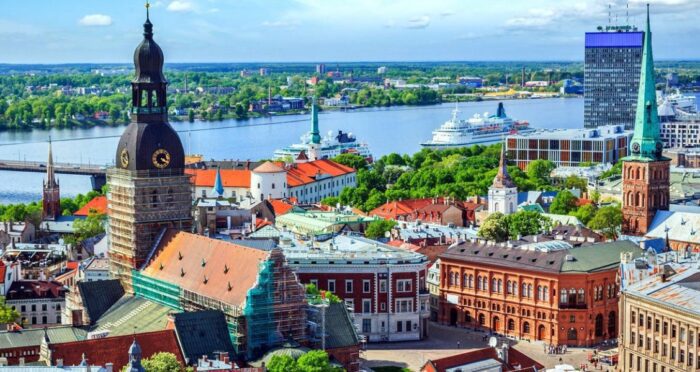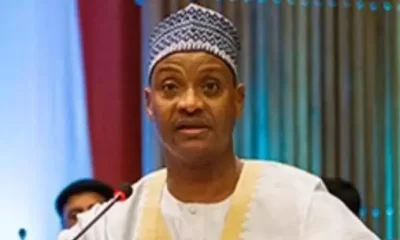Global Issues
Europe Restricts Russian Travellers While Russia Opposes Tit-for-Tat Visa Requirements to Save its Tourism Industry -By Kestér Kenn Klomegâh
Doguzova explained in an interview with Rossiya-24 (VGTRK) on the sidelines of the forum that the necessary measures to sustain the tourism including the launch of an electronic visa program for citizens of 52 countries, including those Russia has designated as “unfriendly” ones in the near future.

The 7th Eastern Economic Forum held in Vladivostok, among others, seeks to address obstacles affecting tourism industry. Within the context of building internal tourism infrastructure, extra-budgetary investment is necessary for for its prompt realization. The Federal government and the Far East regional authority have also focused on this development programme these past years.
In general, unprecedented funding has been allocated to speed up the creation of tourism infrastructure. The government has provided the necessary conditions for the synergy of resources so that internal and foreign tourists can travel around at affordable prices and vacation in modern resorts and entertainment destinations.
But efforts have hit a number of setbacks, many political developments is sharply influencing aspects of the industry. Russia’s inbound and outbound tourism virtually collapsed, first due to the two-year Covid-19 lockdown and now largely due to Ukriane crisis that has brought unto business landscape hefty sanctions. The aviation industry is still struggling to float and maintain normal standard operations.
At the Eastern Economic Forum, the session entitled “Travelling to the East: Opportunities for Investors and Tourists” panelists distinctively noted negative external factors the tourism industry and argued for measures for its recovery. Russian Federal Agency for Tourism (Rostourism) head Zarina Doguzova is advocating to a review of policies negatively impacting in the industry. She considers Foreign Affairs Ministry’s consular services crippling the development of the tourism industry and that Russia is longer friendly due to its tit-for-tat responses to external countries.
Doguzova explained in an interview with Rossiya-24 (VGTRK) on the sidelines of the forum that the necessary measures to sustain the tourism including the launch of an electronic visa program for citizens of 52 countries, including those Russia has designated as “unfriendly” ones in the near future.
Russia earlier planned to launch e-visas for citizens of 52 countries, including European ones, she said. Certainly, there is the need to do some information work and launch an ad campaign. Many fear to visit us for various obvious reasons as a direct result of consistent confrontations and geopolitical changes.
“Foreign tourists help make dozens of billions of dollars around the world. These are big revenues which would stimulate the development of infrastructure and help create new jobs. It’s strategically important to communicate our position to the world, so that tourists, citizens of countries whose governments are taking unfriendly steps toward our country, would have a chance to see Russia,” Doguzova said.
Earlier during a meeting of the Russian State Council presidium dealing with the development of tourism on Septenber 6, Doguzova asked President Vladimir Putin to revisit the plans to launch e-visas for citizens of 52 countries, without following the reciprocity principle, which Russia usually sticks to as concerns visas.
Putin suggested elaborating on this proposal “without clinging to reciprocity.” while addressing the forum session, Putin said Russia would not respond symmetrically to the European Union’s decision to suspend the Visa Facilitation Agreement with Russia.
He expressed the desire developing the idea of expanding the practice of visa-free travel for citizens of specific countries, including those visiting Russia on organized group tours and further proposed developing bilateral cooperation on establishing a visa-free travel framework with foreign countries.
“I would suggest talking not about certain [nations with whom visa-free travel could be established]. Nothing should be imposed on anyone. One should just talk about cooperation on a bilateral track. As regards establishing visa-free travel on a bilateral basis in order to facilitate mutual visits, advice is needed from the Foreign Ministry,” he said.
“In principle, I wouldn’t be holding on to reciprocity in this case. I know the general principle that the Foreign Ministry has, which is the reciprocity principle. When it comes to serving our interests, all these principles should be used, where this is beneficial. If something creates obstacles for us, what are such principles for? One could be more flexible,” Putin said.
Russians have restricted their foreign travel due to the current global changes especially confrontation between the United States, Europe and Russia. According to the European Council decision published in the EU Official Journal, the European Union members suspended the visa facilitation agreement between the European Union and Russia.
“The application of the Agreement between the European Community and the Russian Federation on the facilitation of the issuance of visas to the citizens of the European Union and the Russian Federation (‘the Agreement’) is suspended in whole as regards citizens of the Russian Federation, as from 12 September 2022,” the statement says on its website. It is assumed that the cost of visas and terms of their registration will increase significantly, issuance of visas for tourist purposes will be the last priority of consulates.
Poland and Baltic states (Estonia, Latvia and Lithuania) have coordinated restrictions for Russians. In their statement, Poland and the Baltic states expressed concern “about the substantial and growing influx of Russian citizens to the European Union and the Schengen area through our borders. We believe that this is becoming a serious threat to public security and to the overall shared Schengen area,” according to the European Commission.



















